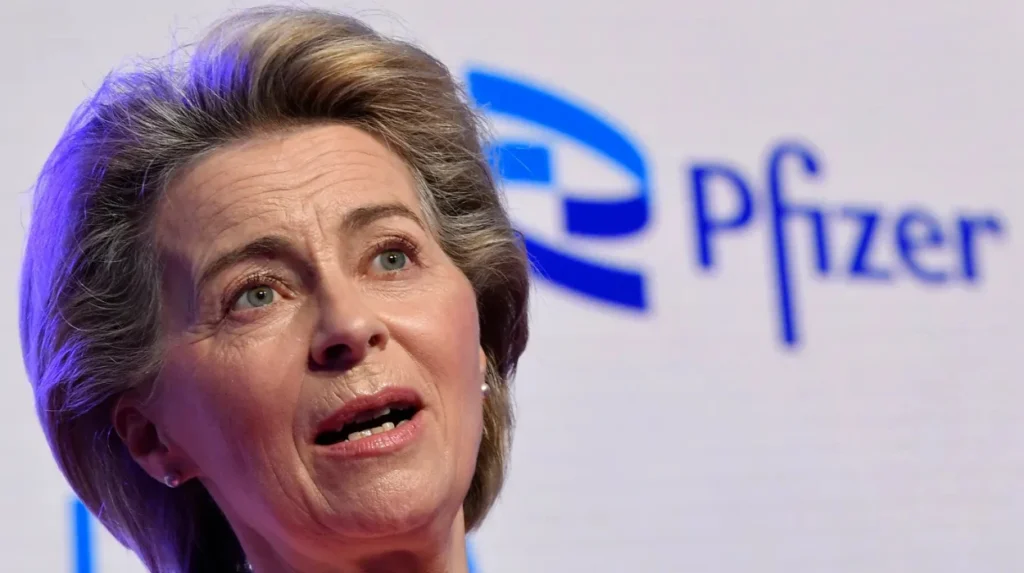European Commission President Ursula von der Leyen is confronting a rare and politically charged no-confidence vote in the European Parliament this week, a challenge that underscores rising tensions over her leadership style and transparency during the COVID-19 pandemic vaccine procurement. The vote, scheduled for Thursday after a parliamentary debate on Monday in Strasbourg, France, marks the first such motion against a Commission president in over a decade and highlights growing dissatisfaction from various political factions within the EU legislature.
Background and Context of the No-Confidence Vote
The no-confidence motion was initiated by Romanian far-right Member of the European Parliament (MEP) Gheorghe Piperea, who secured the necessary 70 signatures to trigger the debate and subsequent vote. The motion accuses von der Leyen of violating EU transparency rules by refusing to disclose text messages exchanged with Albert Bourla, the CEO of Pfizer, during critical vaccine negotiations in 2021 at the height of the COVID-19 crisis. These undisclosed communications have sparked allegations of secrecy and possible misconduct in the handling of vaccine contracts, a controversy now widely dubbed “Pfizergate”.
While no-confidence votes in the European Parliament are rare—reflecting the high threshold for such political challenges—the motion has gained symbolic significance as it exposes fractures within the Parliament and growing anger toward von der Leyen’s administration. If the motion were to pass, it would force the resignation of the entire European Commission and trigger a complex appointment process for 27 new commissioners, a scenario considered highly unlikely given the current political alignments.
The Parliamentary Debate: Accusations and Defense
During the Monday debate in Strasbourg, Ursula von der Leyen appeared before lawmakers to defend her record and respond to the accusations. She described the attacks as unfair and politically motivated, branding her critics as “conspiracy theorists,” “antivaxers,” and “Putin apologists”. Von der Leyen emphasized that the vaccine procurement process was conducted under extraordinary circumstances and that transparency was balanced with the need for confidentiality in negotiations.
The motion of censure, supported primarily by a small faction of far-right MEPs, accuses von der Leyen not only of opacity regarding the Pfizer texts but also alleges misuse of EU funds and interference in elections in Germany and Romania. However, these claims have been dismissed by mainstream political groups as politically motivated and lacking substantive evidence. Daniel Köster, spokesperson for the European People’s Party (EPP)—von der Leyen’s own political group and the largest faction in the Parliament—stated emphatically,
“This group comprises backbenchers and associates of (Russian President Vladimir) Putin. They are against Ukraine and the EU”
and confirmed that the EPP
“will unanimously oppose this motion”.
Political Reactions and Broader Implications
The no-confidence vote has revealed deeper political divisions within the European Parliament. While the far-right bloc initiated the motion, other political groups have used the debate to voice broader criticisms of von der Leyen’s leadership. Some accuse her of attempting to bypass parliamentary scrutiny to expedite decisions, particularly during crises. The Socialists and Democrats, the second-largest political group, criticized the motion as a product of
“the EPP’s irresponsibility and their duplicity”,
reflecting tensions between center-right and center-left factions over governance and transparency issues.
Despite these criticisms, the consensus among mainstream parties is that von der Leyen will survive the vote comfortably. The political reality is that the motion lacks the two-thirds majority required to succeed in the 720-seat Parliament. Nonetheless, the vote serves as a barometer of growing frustration among some lawmakers with what they perceive as increasingly centralized and opaque decision-making at the helm of the European Commission.
Historically, no-confidence motions have had significant consequences in the EU. The most notable precedent occurred in 1999 when a censure motion forced the entire European Commission, led by Jacques Santer, to resign amid allegations of fraud, mismanagement, and nepotism. While von der Leyen’s situation is different in scope and scale, the current vote revives memories of that political upheaval and underscores the gravity of parliamentary scrutiny on the Commission’s leadership.
Transparency Concerns and the “Pfizergate” Controversy
At the heart of the no-confidence challenge is the controversy over von der Leyen’s secret text messages with Pfizer’s CEO. The Commission president’s refusal to disclose these messages has raised questions about accountability and transparency in the EU’s pandemic response. Critics argue that withholding such communications undermines public trust and fuels suspicions of undue influence by pharmaceutical companies in EU policymaking.
Von der Leyen and her supporters contend that the confidentiality was necessary to protect sensitive negotiations and that the Commission acted in the public interest to secure vaccines swiftly. However, the ongoing dispute has led to multiple court cases and intensified calls for greater openness in EU governance.
The controversy also reflects broader concerns about how the European Commission balances transparency with the need for effective crisis management. Some lawmakers fear that the Commission’s increasing centralization of power risks sidelining parliamentary oversight and democratic accountability, a theme that has emerged repeatedly during the pandemic and other EU crises.
A Test of Leadership and EU Political Dynamics
The no-confidence vote against Ursula von der Leyen is a rare and significant event in EU politics, testing not only her leadership but also the resilience of the European Parliament’s oversight mechanisms. While von der Leyen is expected to survive the vote, the debate has exposed underlying tensions about transparency, governance, and political alliances within the EU.
Von der Leyen’s firm rebuttal of the allegations and the support from her political group suggest she will continue to lead the Commission, but the episode serves as a reminder of the challenges facing EU institutions in maintaining public trust and democratic legitimacy amid complex crises.
As the European Parliament prepares to cast its vote on Thursday, the spotlight remains on von der Leyen’s ability to navigate these political headwinds and reaffirm her commitment to transparency and accountability in the EU’s executive branch.







